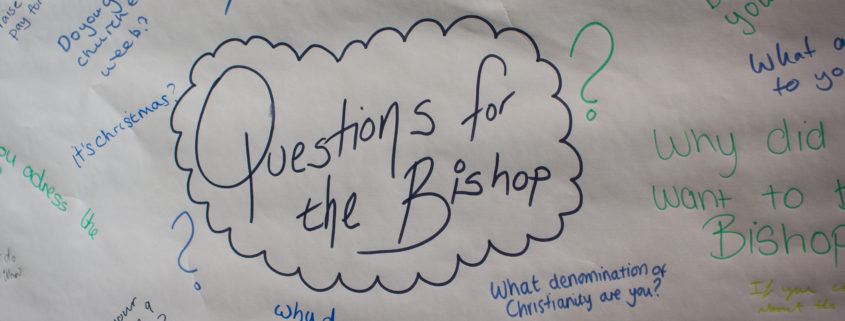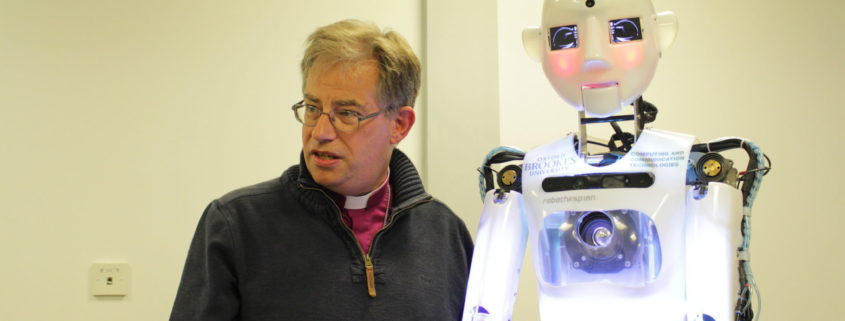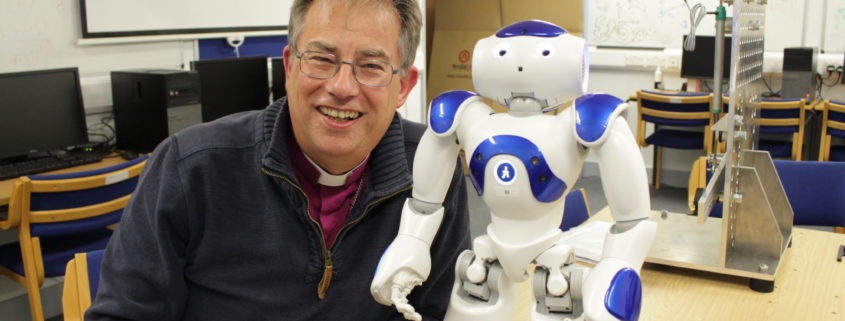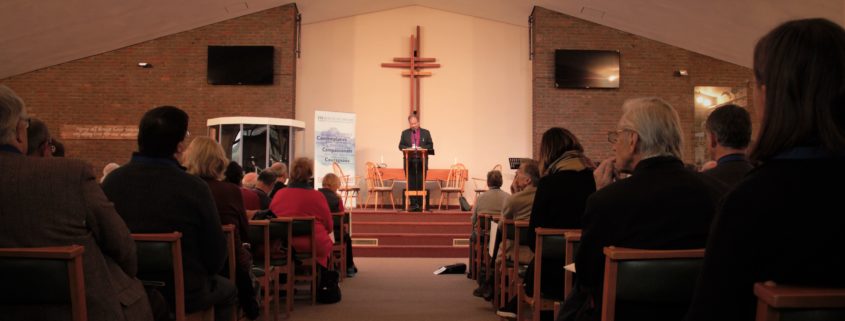“Why are you so full of heaviness O my soul
And why are you so disquieted within me?”
The psalmist asks the same penetrating, painful and honest question three times in Psalms 42 and 43. The Psalms testify here and elsewhere that anguish and pain are more than physical. We suffer within: mentally, emotionally, and spiritually. But the psalmist helps us put into words deep questions to our inner self. We do not know always know what is the matter. We do not understand the source of our dis-ease. We are in dialogue with our souls.
The two images in the refrain are very powerful. My soul is full of heaviness: oppressed, weighed down. My soul is disquieted within me: storm tossed. Elsewhere the Psalms deploy the images of darkness, of watery chaos, of parched deserts, of trembling and inner pain. All of us can relate a little to these pictures. For some they are a constant companion.
An escalation
Mental distress is experienced in many different ways. The names we have for some conditions may be recent but the symptoms are deep in our common story. Even so, in recent years there has been an escalation of mental health related issues with the trends all in the same direction.
The news stories and research findings are sobering:
- Clinically severe levels of anxiety and depression affect at least one in five of the population at any one time
- There is an epidemic of self-harm among young people.
- Suicide is the most common cause of death in men aged 20 – 49
- Almost 10 million British adults are diagnosed with at least one mental health problem each year
- Around one in four adults in the UK have been diagnosed with at least one mental health problem over a lifetime.
Most of us will know someone in our extended family or network, or colleagues who is suffering mental health problems now. Mental health difficulties are spread unevenly across the population.
Some groups are particularly vulnerable to psychological distress presenting as depression because of issues or privation or prejudice. These include:
- Older people living in care homes
- People from the LGBT community
- People on low income
- People detained in prisons or refugee centres
Access to mental health services is more difficult for certain groups in our society. Care is not evenly distributed.
The deeper causes
Mental health is harder to define than physical health. The World Health Organisation defines health as, ‘..a state of complete physical, mental and social well-being and not merely the absence of disease or infirmity’. Health is a positive concept emphasising social and personal resources as well as physical capabilities . Mental health is, ‘…the emotional and spiritual resilience which allows us to enjoy life and survive pain, disappointment and sadness. It is a sense of well-being and an underlying belief in our own, and others’, dignity and worth’ , closely linked with what the Hebrew Bible calls Shalom. It is therefore not simply – or even primarily – the province of specialist mental health professionals but something that should concern us all.
It is a deep insight of the Christian faith that there can be no human flourishing without a sense of meaning and purpose. That insight is confirmed and underlined by the sciences. The psychologist Roy Baumeister proposes four basic needs for meaning that must be met if human beings are to flourish :
- Firstly ‘purpose’ (the need to see that our lives have a plan and a goal)
- Secondly ‘efficacy’ (the need to feel competent and to make a difference)
- Thirdly ‘value’ (the need to know that we have done and are doing the right thing in our lives)
- And finally, and perhaps , most importantly ‘self-worth’ (the need to feel worthy of the love and respect of others, to have a valued place in a community – to belong)
Without meaning our lives will be dominated by chaos, helplessness, shame, and alienation.
Meaning is at the heart of Christian faith. In his book, The Noonday Demon, Andrew Solomon suggests that the increasing prevalence of mental health problems in the developed world is closely tied to modernity: ‘The pace of life, the technological chaos of it, the alienation of people from one another, the breakdown of traditional family structures, the loneliness that is endemic, the failure of systems of belief (religious, moral, political, social – anything that seemed once to give meaning and direction to life) have been catastrophic.’
Good medical help is vital. Those who work in mental health services, often with scarce resources, deserve our respect and gratitude. It is good that we are finding courage to talk about mental health more without stigma. There are signs that the Government and NHS are increasing the resources available. I will be spending time on Wednesday this week at the Warneford Hospital with the Chair and Chief Executive of the Oxford Health NHS Foundation Trust and look forward to learning more.
But the challenge is not simply to service providers but to our whole society. Mental health and wellbeing, should be seen not as the result of ‘cure’ but of the incremental building of networks of relationships and human connection, ‘knit together in love’, that support a sense of purpose, moral value, self-belief and self-worth. This must be undertaken corporately, as well as individually.
A Christ-like Church
There is considerable overlap between the promotion of wellbeing and our call to be a Christ-like church. As a Church we need to take the gospel more seriously: not the repetition of creeds or formulas but the truth that we are carry a message which is the power of God for salvation – for well being and shalom. This gospel we bear brings purpose and hope, value and self-worth. On the basis of the gospel we bear, we call people back from the cliff edge of modernity to the wells of meaning and community and truth.
We are far from perfect as a Church. But our calling is to create communities of kindness and reconciliation, of welcome and trust which serve the common good and are channels of peace and grace in the world.
As we develop our vision to become a more contemplative, compassionate and courageous church, what might we able to offer to a world which is so full of heaviness, so disquieted and ill at ease?
A courageous counternarrative
The Christian vision for mental health and wellbeing is profoundly counter-cultural. In a competitive and capitalist society, people are valued primarily as consumers and valued differently according to wealth and age. Those who are no longer economically productive (the old) and those who are not yet (the very young), are seen as less valuable. Those in mid-life who are at the peak of their productivity often struggle with the stress and pressure that this brings, and feelings of inadequacy that they are not doing well enough. And against this backdrop, people are invited to invest in an impossible dream– that sickness can always be cured, and that old age and death need never happen to us.
The Christian perspective invites us to face facts, and gives us the courage to gaze into the darkness because we know that in the end it cannot overcome the light of Christ. A Christian vision of wellbeing is centred on the image of an interdependent body with Christ as its head, a body in which grows to completeness in part through the transfiguration of suffering, a body which finds its strength in weakness, and a body in which the more marginal voices often turn out to be speaking the most fundamental truths.
Whenever we declare “Blessed are those who mourn” we are encouraging a way of life which embraces rather than denies inner pain and grief and loss. We are affirming those who find life very difficult, including many clergy and lay ministers, but seek grace in the midst of distress.
As churches grow more into the likeness of Christ we need to embrace a culture of interdependence, to value those who are vulnerable, ‘different’, or in pain or distress, and to be prepared to learn from them and not simply to minister to them. On the other hand, they should not be places that make people more vulnerable or cause pain by mimicking or intensifying pressures already there in society. Churches should be places where mental health issues are well understood, for knowledge alongside perfect love, casts out fear.
A contemplative approach to life
Purpose, efficacy, value and worth are essential to mental health. Contemplation, stillness and reflection are in turn key to developing both meaning and resilience.
The psalmist is able to forge distress and emotion into a clear inner question: “Why are you so full of heaviness O my soul and why so disquieted within me”. The ability to ask that inner question is formed through contemplation.
Mental health chaplain, Mary Ellen Coyte , who has experienced mental distress, says, ‘For me, various form of contemplative prayer – in particular the examen – have been deeply transformative and healing. The Ignatian model of spiritual experience (as cycles of spiritual movements between consolation and desolation) within another cyclical framework, that of spiritual growth, has been very containing and supportive.’
Mindfulness is recognised as preventative for mental distress. It is practised in businesses, the NHS, schools, and government. Mary Ellen asks, ‘Why does the church have so little faith in contemplative practices including from its own tradition? There are few churches in the diocese with regular mindfulness or contemplative prayer groups. Mindfulness is very valuable but, for Christians, it can be even more helpful to have the congruence of our own contemplative tradition.’ Her conclusion is, ‘There is a craving in society for meaning and spiritual nourishment and this is a wake up call to the Church to foster safe, deeper, more explicit engagement with spirituality.’
Compassionate spaces of acceptance
Churches offer a structure that has real meaning and power to enable people to deal with the crises which come in every life: death, heartbreak, despair and illness.
Churches are not audiences which gather at the same time each Sunday for an act of worship. Churches are living communities with story and history and opportunities for mutual help and delight. We rejoice with those who rejoice and weep with those who weep. Honesty is key.
Churches are discovering the importance of the vision set out in the beatitudes of ‘being alongside’.
For example:
- The strategies advocated by the Spiritual Crisis Network and the May Tree project for those experiencing suicidal feelings advocate safe space, empathic company as well as grounding activity such as painting and gardening.
- Community cafes such as More Plus in Aylesbury promote mental health and wellbeing by providing a safe space for people for make friends and break down social isolation
- Alice’s Tea Party (SS Mary and John, Cowley Road, Oxford) is a monthly event for mental health service users to come together purely for social contact and mutual support.
Remembering World Mental Health Day annually on the Sunday nearest to October 10th brings mental health issues to the fore and enables people to be more open about what they have to deal with, and so overcome stigma.
Ensuring that someone in each congregation knows about the available statutory and voluntary services in their area as well as useful national organisations. In Oxfordshire, for instance, there is the 2017 MIND Guide. Or perhaps parishes might invest in sending one or two people on a Mental Health First Aid course, which the government will be investing £15 million in over the next year.
Schools, including church schools, can play an enormously supportive role to children and young people, through PSHE, combatting bullying of all kinds and giving opportunities to develop skills in emotional literacy. And Papyrus have some excellent resources to help young people.
The Psalmist’s cry echoes across the communities of our diocese as the people whom God loves cry out in pain and ask deep questions of their inner lives.
“Hope in God for I shall again praise him; my help and my God”.
+Steven Oxford
A Presidential Address to the Diocesan Synod
18th November, 2017
This address was prepared jointly with my colleagues Alison Webster, Joanna Collicut and the Health and Social Care Group of the Diocese of Oxford. For an excellent introduction to the theme see this short film by Dr. Pat Deegan, speaking of her own diagnosis as a teenager with Schizophrenia.
The Oxfordshire MIND info line is 01865 247788
The Director of MIND has said that if people ring this line for help/advice, every effort will be made to signpost them to the service they need, eg for advocacy or benefits advice. There are branches of MIND in Bucks and Berks also.
A prayer for Mental Health Day by Alison Webster:
God of compassion,
You meant us to be both fragile and ordinary.
Silence the voices that say we are not good enough,
Haven’t achieved enough,
Haven’t enough to show for our lives,
That we are not enough.
Help us to know that we are treasure,
We are prized,
We are cherished,
We are loved.
Infinitely.
By you.
So be with us in our corrugations of feeling:
When our hearts are in downward freefall, be with us
When our minds race with anxiety, be with us
When our throats close in fear, be with us
When sleep will not come, be with us
When waking hurts, be with us.
In the name of Jesus,
Who knew trauma, abuse, despair and abandonment
And has nothing but love for us,
Amen.
References
‘Around one in four adults in the UK have been diagnosed with at least one mental health problem over a lifetime’
- McManus S, Meltzer H, Brugha T, Bebbington P, Jenkins R (eds) (2009) Adult Psychiatric Mobidity in England 2007 results of a household survey quoted in the Theos paper, The Bible and Mental Health
‘Health is a positive concept emphasising social and personal resources as well as physical capabilities’
‘It is a sense of well-being and an underlying belief in our own, and others’, dignity and worth’
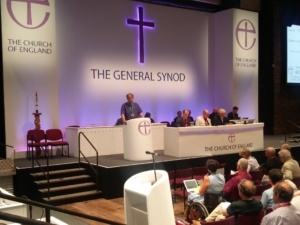


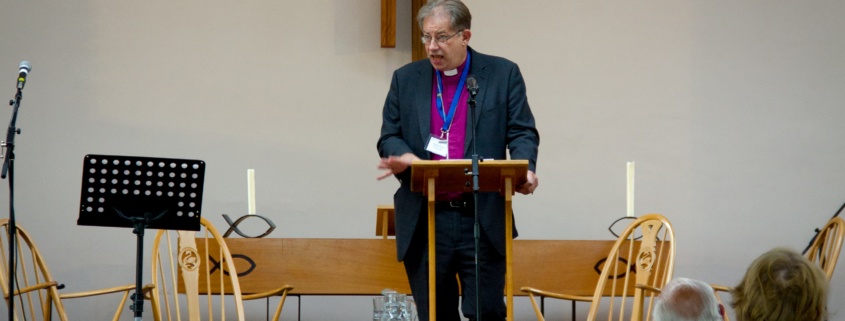 Steven Buckley
Steven Buckley

